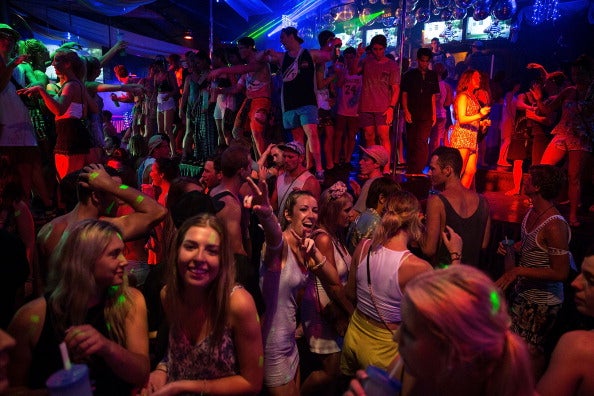Your support helps us to tell the story
From reproductive rights to climate change to Big Tech, The Independent is on the ground when the story is developing. Whether it's investigating the financials of Elon Musk's pro-Trump PAC or producing our latest documentary, 'The A Word', which shines a light on the American women fighting for reproductive rights, we know how important it is to parse out the facts from the messaging.
At such a critical moment in US history, we need reporters on the ground. Your donation allows us to keep sending journalists to speak to both sides of the story.
The Independent is trusted by Americans across the entire political spectrum. And unlike many other quality news outlets, we choose not to lock Americans out of our reporting and analysis with paywalls. We believe quality journalism should be available to everyone, paid for by those who can afford it.
Your support makes all the difference.As students from across the UK prepare to return back to their university campuses for their second semester after a well-earned break, January will also see the appearance of refreshers’ week at most universities. While refreshers’ is the opportunity for sports clubs and societies to shout about all the opportunities available with your students’ union, it also has a reputation for increase in excessive drinking the week brings.
Student safety on a night out is paramount as they are vulnerable to robbery, violence, and sexual offenses. A recent crime report on the best and worst universities and colleges for student-relevant crime, excluding London, stated the University of Buckingham as being in the safest city - with an overall crime rate of just 8.58 per cent - In comparison to Royal Northern College of Music, where the statistic rocketed to almost 40 per cent. However, London-based universities came out with high scores from the outset. Kingston University, despite being ranked top of the table, came out with an overall rate of almost 22 per cent, as King’s College London held the worst statistics; 31.38 per cent for violence and sexual offences, and an overall rate of almost 48 per cent.
According to a different report from Drinkaware: “Some risks are considered and actively managed during a drunken night out - in particular the risks associated with non-consensual interactions such as sexual assault and violence.”
The report continues to say evidence suggests “these are indeed serious risks in the context of a drunken night out” with there being a significant problem of violence associated with drunken nights out, skewed towards more serious incidents such as “wounding.”
Many participants told the study they had witnessed - or been victims of violence - on a drunken night out as the report went on to add: “There is an association between alcohol consumption and sexual assault. Responses from our participants suggested molestation and groping are common experiences as part of a drunken night out.”
Students, therefore, need to take extra precaution of their wellbeing on a night out, in particular, ensuring they travel safely and protect their belongings - as well as looking out for each other - while on a night out. Ultimately, drink responsibly, plan your route home before you go out - and always stay in a group.
Twitter: @YazyTauk

Join our commenting forum
Join thought-provoking conversations, follow other Independent readers and see their replies
0Comments